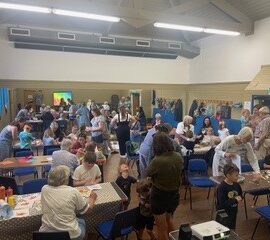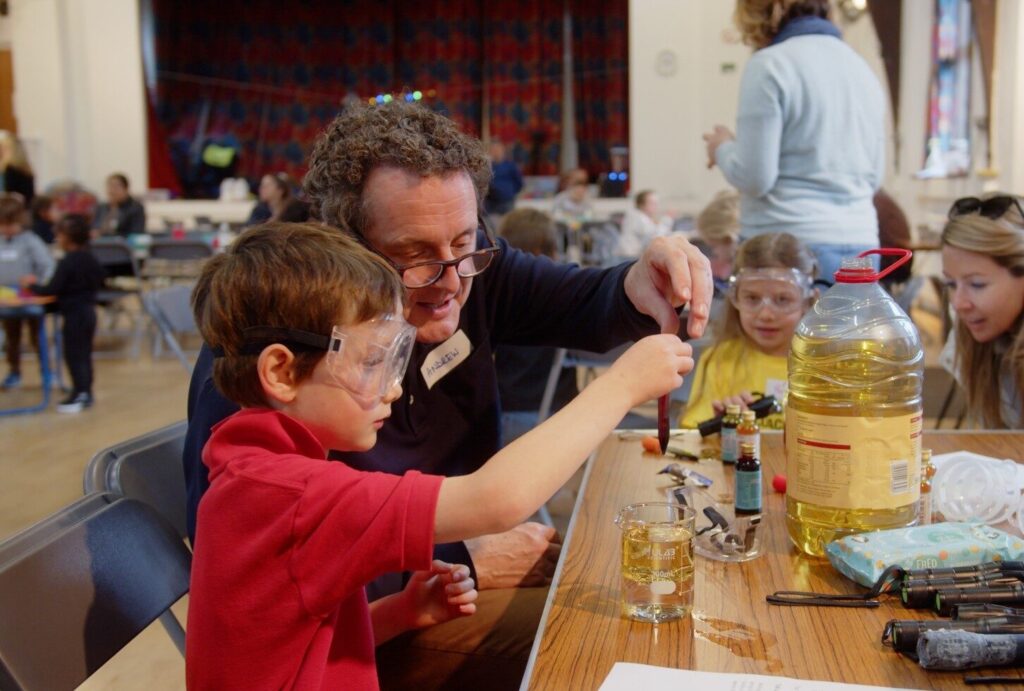I’ve been listening to The Ashes (Test Match cricket series between England and Australia) this summer. One of the fascinations of Test cricket is the story. Played over five days, often each session of play has a distinct story, maybe a player who has made a long stand or a story of missed opportunities. Each match will have a story, not just of who won but of moments within the game. Then the series of matches will have a story, a story of high and low points for each side (or sometimes a series of high points for one team and low points for the other!). In the case of The Ashes, the story of an individual series is wrapped up in stories of previous series creating an ongoing almost epic saga. One of the reasons I love sport is the story that sits within it. Whatever the sport, there are stories of triumph and defeat, of overcoming adversity, of failing and trying again.
The power of a story, whether fact or fiction is how we relate to it – whether through the situations, the characters, the location, or the time period. It is how we connect with the story, how we see ourselves and those we know in the story. One of the most memorable speakers I have listened to was Becky Tyler preaching at Greenbelt 2017. Becky was then 14 years old and a wheelchair user, she spoke about how she had struggled to relate to the stories in the Bible because she couldn’t see anyone like her. Until her mum showed her Daniel 7:9
‘As I looked, “thrones were set in place, and the Ancient of Days took his seat. His clothing was as white as snow; the hair of his head was white like wool. His throne was flaming with fire, and its wheels were all ablaze.”’(NIV)
To quote Becky: ‘God is a wheelchair user! Yeah!’ You can find Becky’s message here and more details including a recording of the entire service here.
Recently I was able to attend the Methodist Women in Britain, Mary Bosanquet Lecture (available here), delivered by Canon Dr Paula Gooder who some of you will remember from the Messy Church Conference last year. The topic of the lecture was ‘Reading between the lines, finding women in the Bible even when it looks as though they aren’t there.’ The lecture discussed examples of women who are overlooked in the Bible for a variety of reasons. And those who are removed either by our imagination or by, for example, the way different lectionaries progress through the Bible. It’s interesting to see who features in the verses just before or just after the day’s reading!
In relation to the last supper, the talk highlighted that this would likely have been a family occasion, both women and children would have been present. So just as we miss out on noticing women in the Bible so too might we be missing the children? At the last supper, in the houses Jesus visited, sitting with the shepherds, present throughout Acts, central to the story of the feeding of the 5,000 (men!), how many people were actually there? And in Jesus’ own words ‘let the little children come to me!’
I think there is often a tendency for people to groan slightly during a service when the all-age ‘bit’ is reached and the Bible story is retold from the perspective of a different character within the story (often a child or a woman), often seeing it as a watered-down means of making it accessible rather than a way of seeing more of the details! If you reflect on the fact that said character may very well have been there unmentioned, how might that change people’s perspective?
This need to connect with stories applies to life as well. If we don’t see others like us in roles, how can we imagine ourselves in that role? One example (sport again – sorry!) that springs to mind is the news that Forest Green Rovers have named Hannah Dingley as their caretaker manager – making her the first woman to take charge of a senior professional men’s team in England. How much difference does it make to see someone like you? How much harder is it if you have to be the trailblazer, the first one to do something?
There’s no denying that on the surface it might look easier to have separate worship opportunities or church activities. It is easier to design a message for one audience, and simpler if you only need to make it accessible to one group of people. But just as we miss people when we imagine biblical scenes, how much more do we miss out on when we don’t have people’s presence with us? We miss out on the enquiring minds of younger children, the rigorous challenge that teenagers offer, the honest questioning and the willingness to admit to not knowing. Jesus clearly valued the input of all. And later in the Bible, as Dr Gooder highlighted in her lecture, others saw the importance of involving everyone in the work to be done. If the harvest is big and the labourers are few, then who sensibly excludes others?
A question for Messy Churches, therefore, is who are we still overlooking? Who are our imaginations too small to see? Who do we need to lift up? What gifts and talents are already there that we can highlight, take joy in and use to help build the kingdom? We need to ensure that our Messy Churches are in every sense diverse and intergenerational communities. This includes the leadership of our Messy Churches. When people aren’t represented then they need to be asked and to be encouraged. Who could you support, and in doing so help to create a diverse leadership and a sustainable future for your Messy Church?
Sally O’Hare
Messy Church coordinator
The Mary Bosanquet Lecture was recorded and is available on the Methodist Women in Britain website.
You may also like

Seaside Sojourn
21st Oct 2024It seems that I always get booked to deliver in-person training at seaside locations. This trend continued last weekend, as I headed off to the coastal village of Seaton, Devon.

Our Survey Said…
7th Oct 2024Back in February 2024, Church of England kindly sponsored a survey, completed by 330 Messy Church leaders. This is what we...

Storytelling from within God’s Story.
10th Sep 2024Hi Messy Friends! My name is Andrew McDonough. I live in Australia, draw sheep and tell stories. It began long long ago w...

Doing Things Differently in Different Places
6th Aug 2024When we hear these two words ‘Messy Church’, we may well have a picture in our minds of what we hope will happen and h...

